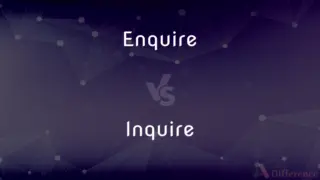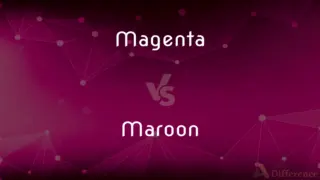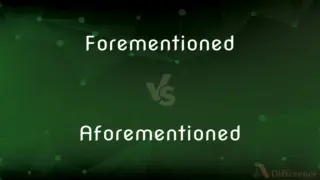Extortion vs. Racketeer — What's the Difference?
By Tayyaba Rehman — Updated on August 17, 2023
Extortion is the act of obtaining something, especially money, through force or threats, while a racketeer engages in organized, often illegal, activities or businesses.

Difference Between Extortion and Racketeer
Table of Contents
ADVERTISEMENT
Key Differences
Extortion is a specific crime in which an individual obtains something, usually money, from another individual through coercion. Racketeer, on the other hand, refers to a person involved in organized illegal activities or businesses.
While both extortion and racketeering are illegal, the nature and scope of their illegality differ. Extortion focuses on the singular act of obtaining something through threats or force. In contrast, racketeering covers a wider array of crimes often associated with organized criminal enterprises.
In some jurisdictions, laws like the Racketeer Influenced and Corrupt Organizations Act (RICO) specifically target racketeering, aiming to dismantle and penalize the operations of organized crime groups. Meanwhile, laws against extortion target individuals who employ threats or force to gain something unlawfully.
Comparison Chart
Definition
Obtaining something through force or threats
Engaging in organized illegal activities or businesses
Nature
Specific act
Broad involvement in illegal operations
ADVERTISEMENT
Associated Laws
Anti-extortion statutes
RICO and other anti-racketeering laws
Scope
Singular act of obtaining something
Array of crimes often within a criminal organization
Common Tools
Threats, force, or coercion
Criminal enterprise, organized operations
Compare with Definitions
Extortion
Extortion is the practice of obtaining benefit through coercion. In most jurisdictions it is likely to constitute a criminal offense; the bulk of this article deals with such cases.
Racketeer
A person who engages in an illegal business or other organized illegal activities.
Extortion
The practice of obtaining something, especially money, through force or threats
He used bribery and extortion to build himself a huge, art-stuffed mansion
Extortion rackets
Racketeer
To engage in an illegal business or other organized illegal activities.
Extortion
Illegal use of one's official position or powers to obtain property, funds, or patronage.
Racketeer
One who commits crimes (especially fraud, bribery, loansharking, extortion etc.) to aid in running a shady or illegal business.
Extortion
The act or an instance of extorting something, as by psychological pressure.
Racketeer
One who instigates or has involvement with a racket.
Extortion
An excessive or exorbitant charge.
Racketeer
To carry out illegal business activities or criminal schemes.
Extortion
The practice of extorting money or other property by the use of force or threats.
Racketeer
To commit crimes systematically as part of a criminal organization.
Extortion
The act of extorting; the act or practice of wresting anything from a person by force, by threats, or by any undue exercise of power; undue exaction; overcharge.
Racketeer
Some who commits crimes for profit (especially one who obtains money by fraud or extortion)
Extortion
The offense committed by an officer who corruptly claims and takes, as his fee, money, or other thing of value, that is not due, or more than is due, or before it is due.
Racketeer
Carry on illegal business activities involving crime
Extortion
That which is extorted or exacted by force.
Racketeer
A person involved in organized illegal activities.
The city was known to harbor several influential racketeers.
Extortion
An exorbitant charge
Extortion
Unjust exaction (as by the misuse of authority);
The extortion by dishonest officials of fees for performing their sworn duty
Extortion
The felonious act of extorting money (as by threats of violence)
Extortion
The act of obtaining something through force or threats.
He was guilty of extortion when he demanded money in exchange for not revealing the secret.
Extortion
Coercive extraction of money or valuables from someone.
The mob's extortion scheme targeted local business owners.
Extortion
A crime where one obtains assets from another through coercion.
The businessman was arrested for his role in the extortion plot.
Extortion
Using power or leverage to force someone to give something up.
She felt trapped in the act of extortion when her past was used against her.
Extortion
Manipulating circumstances to acquire goods or money.
The corrupt official's extortion was exposed by an investigative journalist.
Common Curiosities
How is extortion different from blackmail?
While both involve threats, extortion generally seeks to obtain money, goods, or services, whereas blackmail demands money to suppress information.
Is racketeering only about illegal businesses?
No, racketeering can also involve legal businesses used for illicit purposes, such as money laundering or fraud.
How do laws differentiate between extortion and racketeering?
While anti-extortion laws target individuals obtaining something through threats, anti-racketeering laws like RICO target organized crime and their broader illegal operations.
Can someone be both an extortionist and a racketeer?
Yes, an individual can be both an extortionist and a racketeer if they obtain something through threats within the context of organized illegal activities.
What are the potential consequences for someone found guilty of extortion or racketeering?
Consequences can range from fines, asset forfeiture, to imprisonment, depending on the jurisdiction and the severity of the crime.
What is extortion?
Extortion is the act of obtaining something, particularly money, from someone through force, threats, or other forms of coercion.
Who is a racketeer?
A racketeer is an individual engaged in organized illegal activities or businesses.
Is extortion always about money?
No, extortion can be about obtaining any valuable item, service, or advantage, not just money.
Is being a racketeer the same as being part of a mafia or gang?
Not necessarily. While many members of mafias or gangs can be racketeers, not all racketeers are part of such organizations.
How can one identify if they are a victim of a racketeer?
Being coerced into illegal activities, or being involved in transactions with individuals with known organized crime connections, may be indicators.
Share Your Discovery

Previous Comparison
Vinyl vs. Plastic
Next Comparison
Enquire vs. InquireAuthor Spotlight
Written by
Tayyaba RehmanTayyaba Rehman is a distinguished writer, currently serving as a primary contributor to askdifference.com. As a researcher in semantics and etymology, Tayyaba's passion for the complexity of languages and their distinctions has found a perfect home on the platform. Tayyaba delves into the intricacies of language, distinguishing between commonly confused words and phrases, thereby providing clarity for readers worldwide.














































